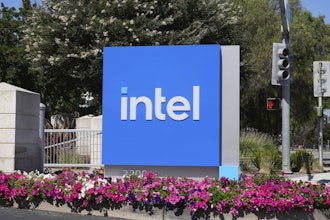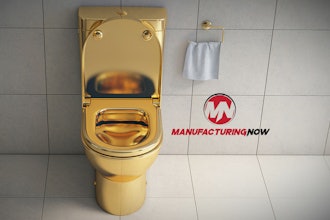
According to a recent statement by NAM (National Association of Manufacturers) “Sustainable business practices are no longer optional for manufacturers.”
There was a time when a pronouncement like this could surely only be attributed to an environmental policy group or the EPA under Democratic administration. That’s because, for many years, the manufacturing industry has often been at odds with policy changes in favor of improved energy efficiency or other operating requirements geared towards sustainability. The argument was not that eco-friendly improvements were bad, rather they were blanketed and disruptive and many businesses didn’t believe they benefited from such regulation.
So why is the National Association of Manufacturers making such a proclamation? Because the days of kicking the can down the road are over. In a recent statement issued by the organization, NAM contends that reduced energy and materials consumption, lower emissions and ethical sourcing are part of an overall package of expectations facing manufacturers in the coming years, and the goals are “ambitious.”
It’s an outsized challenge, but luckily NAM is ambitious too. The outfit has established a new working group that leverages member expertise in order to help businesses to meet goals. According to NAM, “with five virtual meetings each year, the M4.0 Sustainability and Net Zero Decision Compass Group will explore key issues, best practices and challenges related to creating sustainable, compliant and environmentally friendly operating strategies.”
NAM cites data from its Manufacturing Leadership Council (MLC) who says a survey of their 3,300+ members identified sustainability as a top concern. The new working group hopes to shine a light on manufacturer success stories to help provide a roadmap as to the use of advanced technologies. The group stresses that these business strategies have a payback outside of compliance: costs savings, improvements in product quality and increased satisfaction from shareholders and employees all factor in.
The Harvard Business Review validates these claims, saying that it’s a common misconception that the costs of sustainable business practices outweigh the benefits. Based on its research, HBR believes the following to be true:
- A company with a sustainability agenda is better positioned to anticipate and react to economic, social, environmental, and regulatory changes as they arise.
- Supply chains are vulnerable to environmental risks (think industries like food where floods or droughts can be catastrophic for growing conditions), and managing risks today help businesses form adaptive strategies over the long term.
- Fostering innovation: HBR says product designs that are adapted to meet environmental standards or social needs can offer new business opportunities.
- Companies can realize cost savings through sustainability-related operational efficiencies. This could come from better-managed water and energy or reductions in waste.
Perhaps most notably, HBR says one study estimated that “companies experience an average internal rate of return of 27% to 80% on their low carbon investments.” A good payback indeed when you consider the razor thin margins on which many businesses – struggling with high labor and material costs – operate in today’s business environment.
Consumer and regulatory pressures are not going anywhere, and the realities of climate change are becoming more urgent by the day. The moral imperative is there, but so is the ROI – so why wait?






















